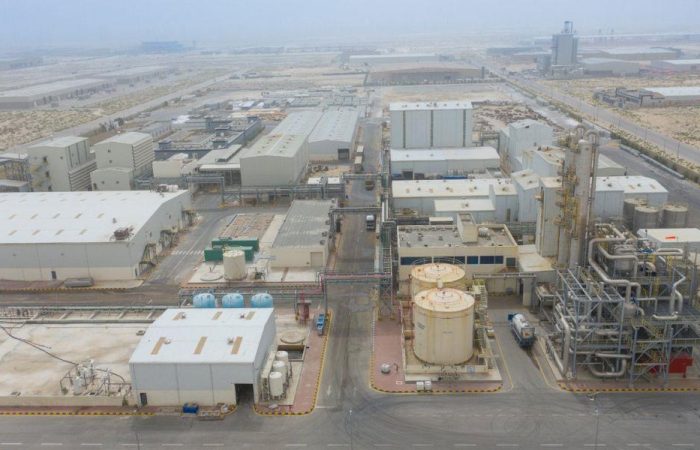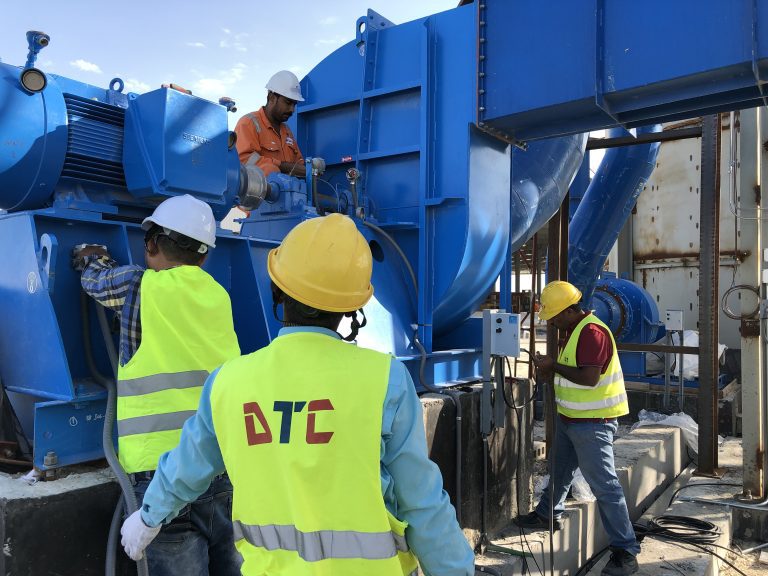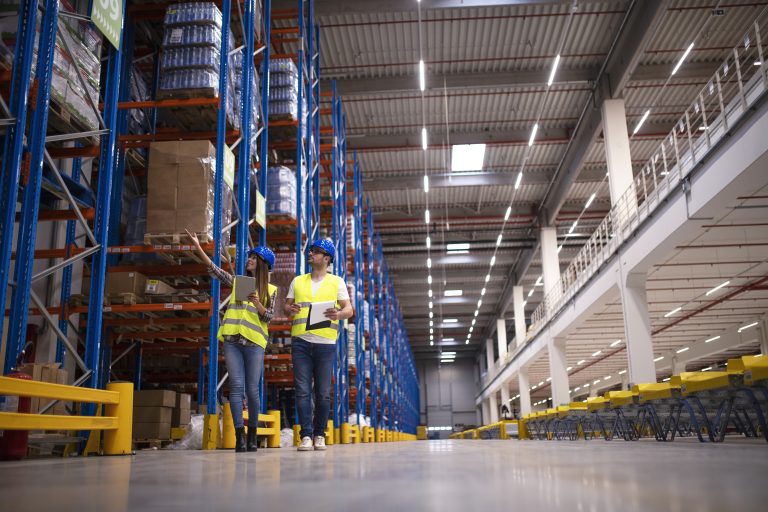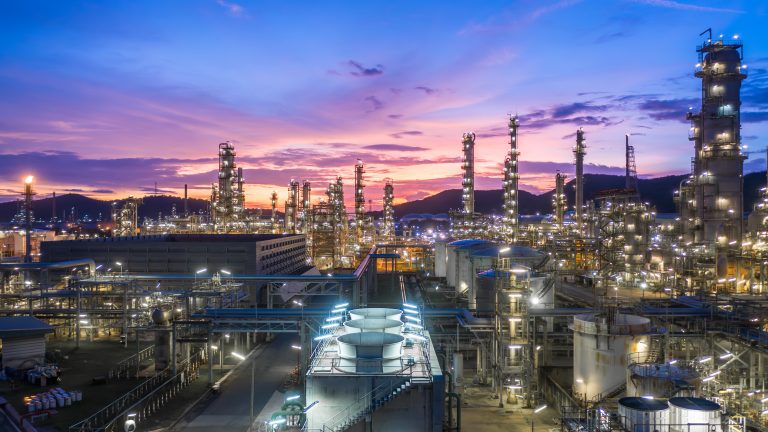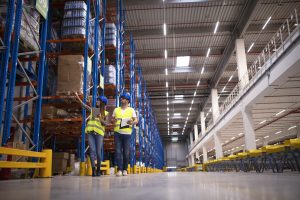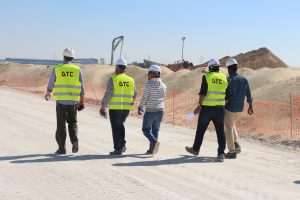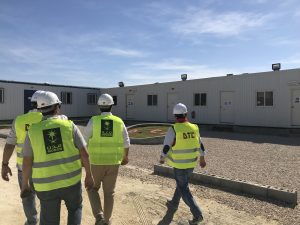industrial logistics and warehousing Saudi Arabia
Industrial Logistics and Warehousing Saudi Arabia: Growth, Infrastructure, and Vision 2030 Opportunities
Introduction to Industrial Logistics and Warehousing in Saudi Arabia
Industrial logistics and warehousing Saudi Arabia are at the core of the nation’s transformation into a global trade and manufacturing powerhouse. The Kingdom’s unique geographic position — connecting Asia, Europe, and Africa — allows it to serve as the Middle East’s logistics hub, linking continents through efficient trade corridors.
Driven by Vision 2030, Saudi Arabia is investing billions into smart logistics infrastructure, industrial warehousing, ports, and free zones. The government’s target is clear — to position Saudi Arabia among the world’s top 10 logistics markets by 2030.
Logistics hubs such as Riyadh, Jeddah, Dammam, Jubail, and NEOM are being redesigned with advanced warehousing systems, smart technologies, and sustainability features to meet global demand.
Evolution of the Logistics and Warehousing Sector in Saudi Arabia
Early Development and Trade Infrastructure
Saudi Arabia’s logistics sector historically revolved around oil exports. With the growth of industrialization in the 1980s and 1990s, ports, industrial zones, and transport corridors began expanding rapidly. The Saudi Ports Authority (MAWANI) and MODON played vital roles in creating logistics-ready industrial environments.
Economic Diversification and Supply Chain Modernization
Today, industrial logistics and warehousing Saudi Arabia are diversified across energy, manufacturing, e-commerce, and retail. With the National Industrial Development and Logistics Program (NIDLP), Saudi Arabia is streamlining customs, digitalizing operations, and encouraging foreign investment in logistics parks and bonded zones.
Major Logistics and Warehousing Hubs in Saudi Arabia
Riyadh Dry Port and Central Logistics Zones
Located in the capital, the Riyadh Dry Port connects directly to King Abdulaziz Port in Dammam via rail. It handles millions of tons annually, serving as the central node for distribution across the Kingdom.
Jeddah Islamic Port and Western Logistics Gateway
Jeddah Islamic Port processes around 70% of Saudi imports and exports. Its logistics clusters support warehousing for FMCG, automotive, and e-commerce sectors.
Dammam, Jubail, and Eastern Industrial Corridors
The Eastern Province is the industrial backbone of Saudi Arabia, home to Jubail Industrial City and King Salman Energy Park (SPARK). These zones combine industrial logistics, warehousing, and petrochemical supply chains to support global trade.
NEOM, Red Sea Global, and Future Smart Logistics Cities
Saudi Arabia’s future-oriented projects — NEOM, OXAGON, and The Line — feature fully automated ports, drone-based warehousing, and AI-driven logistics centers to redefine industrial logistics standards globally.
Key Players and Government Initiatives in Saudi Logistics
Saudi Logistics Hub Program (SLH)
Launched to enhance global competitiveness, SLH supports customs reforms, multimodal transport integration, and e-commerce logistics hubs. It also connects over 59 logistics zones across the country.
MODON and Industrial City Development
The Saudi Authority for Industrial Cities and Technology Zones (MODON) oversees more than 36 industrial cities, providing logistics-ready land, utilities, and services for investors.
Public-Private Partnerships and Foreign Investment
Saudi Arabia promotes PPPs in logistics construction and operation. Global firms like DP World, DHL, and Maersk have partnered with Saudi entities to establish world-class logistics infrastructure.
Benefits of Investing in Industrial Logistics and Warehousing Saudi Arabia
Strategic Location and Global Trade Connectivity
Saudi Arabia’s position at the intersection of three continents makes it ideal for regional and global supply chain management. With over 13 commercial ports and expanding railway networks, it connects producers and consumers across continents.
Tax Incentives, Land Availability, and Infrastructure Support
Investors enjoy 0% customs duties on re-exported goods, tax exemptions, and easy access to industrial land through MODON and Economic Cities Authority.
Skilled Workforce and Technological Advancements
Saudi Arabia’s young, educated workforce is being upskilled through TVTC programs and partnerships with logistics technology providers.
Technology and Innovation in the Logistics Sector
Automation, Robotics, and AI in Warehousing
Smart warehousing in Saudi Arabia leverages robotic pick-and-place systems, autonomous forklifts, and AI-driven demand forecasting, significantly improving efficiency.
Smart Supply Chain Management and IoT Integration
IoT sensors and blockchain are used for real-time inventory tracking, enabling transparency and predictive maintenance across warehouses.
Cold Chain and E-commerce Logistics Development
With e-commerce booming, cold chain logistics has become essential. New facilities in Jeddah and Riyadh handle food, pharmaceuticals, and perishables under regulated environments.
Challenges and Solutions in Saudi Industrial Logistics
Infrastructure Expansion and Cost Efficiency
While large-scale projects require heavy capital, PPP models and global partnerships help reduce costs and ensure project completion.
Regulatory Reforms and Customs Facilitation
ZATCA and MAWANI are implementing customs automation to cut clearance times from days to hours.
Workforce Localization and Training Programs
Programs like Human Capability Development (HCDP) equip Saudi youth with specialized logistics and warehouse management skills.
Sustainability and Green Logistics in Saudi Arabia
Renewable Energy Integration in Warehousing
Solar panels are being installed across logistics parks to reduce dependency on grid electricity. Projects like NEOM and SPARK are pioneers in net-zero logistics operations.
Eco-Friendly Transportation and Packaging Solutions
Saudi Arabia promotes electric trucks, smart fleet management, and biodegradable packaging to minimize carbon emissions and improve logistics efficiency.
Future Outlook: Vision 2030 and Beyond
Smart Industrial Zones and Free Trade Corridors
By 2030, Saudi Arabia plans to integrate all industrial logistics and warehousing hubs into smart ecosystems managed through digital twins and AI.
Logistics Role in Global Supply Chains
The Kingdom is positioned to become a bridge between East and West, offering resilient, sustainable, and high-capacity trade infrastructure.
Saudi Arabia as a Regional Logistics Superpower
With projects like Landbridge Railway, Jeddah Dry Port, and NEOM’s OXAGON, Saudi Arabia is on track to lead the global logistics landscape by 2030.
Case Studies of Successful Logistics Developments
Jeddah Logistics Park
Developed in partnership with Maersk, this park provides advanced cold storage, warehousing, and last-mile delivery infrastructure.
King Salman Energy Park (SPARK) Logistics Zone
SPARK integrates energy, logistics, and warehousing services — a key step in supporting downstream industrial growth.
Riyadh Integrated Industrial City
Combining warehousing, e-commerce logistics, and smart transport, this project exemplifies the future of digital logistics ecosystems.
FAQs: Industrial Logistics and Warehousing Saudi Arabia
Q1: What drives the logistics and warehousing boom in Saudi Arabia?
A: Vision 2030, global trade diversification, and massive infrastructure investments drive the sector.
Q2: Are foreign companies allowed to invest in Saudi logistics?
A: Yes, 100% foreign ownership and investment-friendly policies encourage global participation.
Q3: What are the key logistics hubs in Saudi Arabia?
A: Riyadh, Jeddah, Dammam, Jubail, and NEOM are the major logistics centers.
Q4: How is Saudi Arabia promoting sustainable logistics?
A: Through renewable energy warehousing, electric fleets, and digital logistics platforms.
Q5: What is the role of technology in Saudi warehousing?
A: Automation, AI, IoT, and robotics are revolutionizing inventory management and operational efficiency.
Q6: What opportunities exist for investors in this sector?
A: Industrial logistics, cold chain storage, e-commerce warehouses, and smart distribution networks.
Conclusion
The transformation of industrial logistics and warehousing Saudi Arabia under Vision 2030 represents one of the most significant evolutions in global supply chain history. With massive infrastructure investments, strategic geographic advantages, and government-backed reforms, Saudi Arabia is well-positioned to become the logistics capital of the Middle East — and a key global trade connector.

